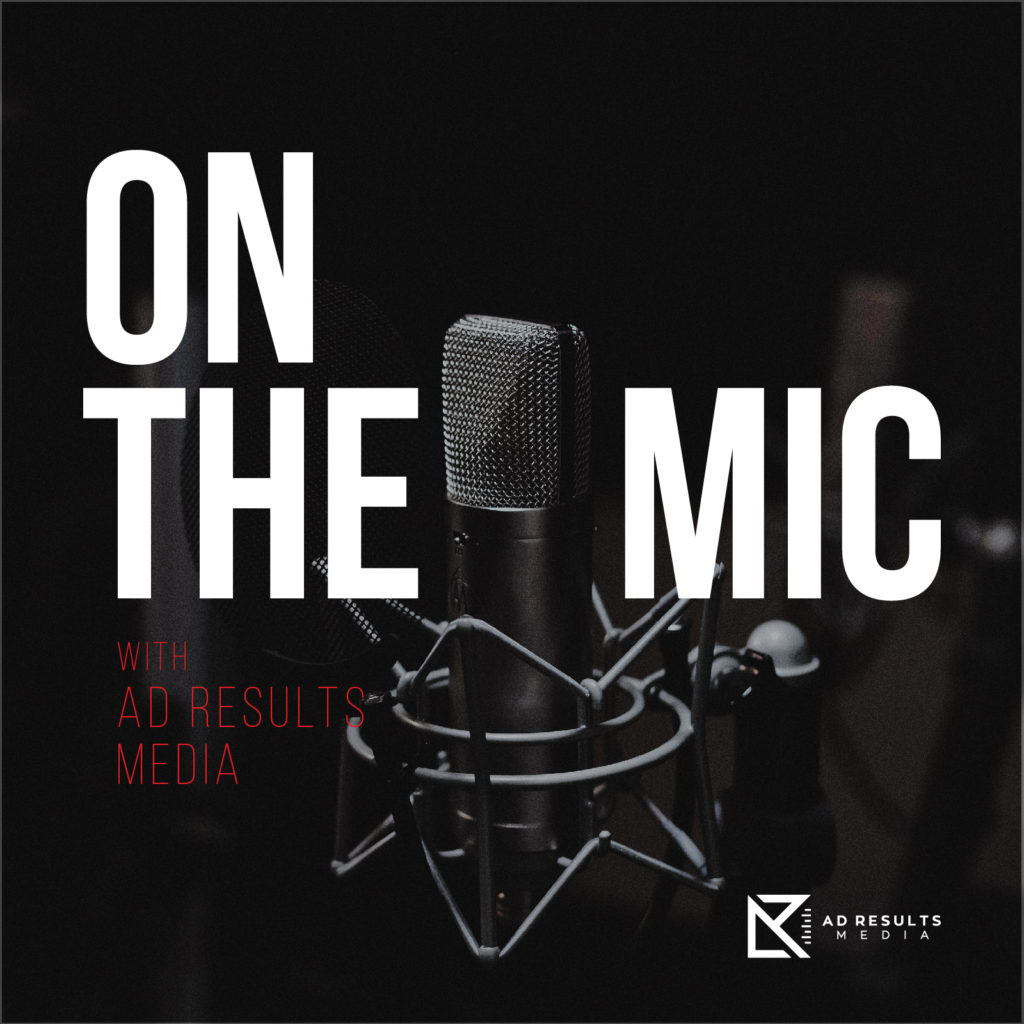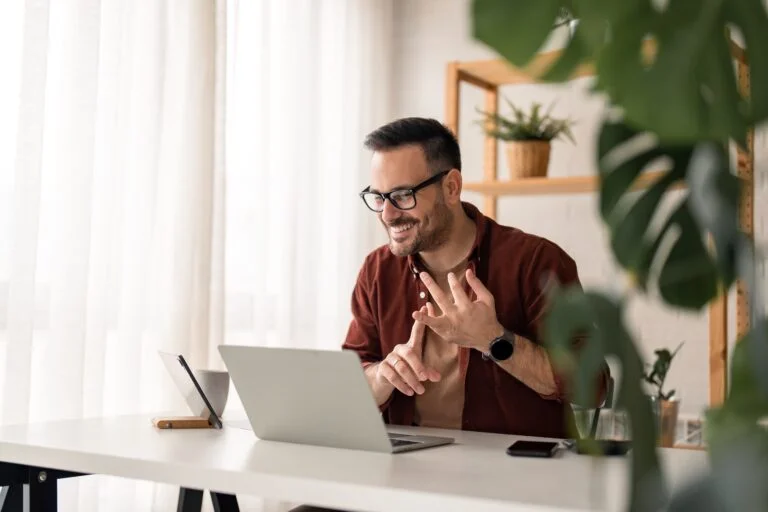“Entertainment always comes first. If you’re not entertaining, the rest will fall apart. Ideally, people really enjoy the story and then afterwards, or the in the days afterwards, they start thinking about the larger picture, or larger themes I tried to trickle in.
By2021, podcasting is expected to become a $1 billion global industry. Audience numbers and revenue projections continue to increase each year, and the rules of this new media business are being written in real time. Last week, we went back to school at University of Michigan’s Ross School of Business with some of the biggest names in podcasting like Spencer Brown (Founder and CEO of Cadence13) and podcaster Andrew Jenks, to uncover what’s really moving the industry forward. Following the discussion, Authority Magazine, sat down with Andrew on what it takes to produce a successful podcast in the Q&A below. Click below image for a live recording of the full panel conversation.
Can you tell us a bit about your background?
I’m a documentarian and storyteller first and foremost. I’m the host and co-writer of the Cadecne13 Originals’ docuseries, Gangster Capitalism, and the docuseries What Really Happened? Some of my films and shows have been financed and distributed on networks including HBO, Netflix, ESPN, CNN, MTV, and Discovery, but I’m most proud of my nonprofit, The All-American High School Film Festival. It’s the largest high school student film festival in the world, giving nearly two million dollars in scholarships and prizes to aspiring students. I would say early on, my mission was to focus on humanizing individuals oftentimes overlooked or people who have fallen victim to corrupt institutions in a number of different content series.
Why or how you got started as a podcaster?
I was actually pitching a documentary idea to Dwayne Johnson and his team. The documentary would tell an unknown story about how Muhammad Ali saved a guy from committing suicide. While I was telling the story in the room, someone said it sounded like they were listening to a podcast. We talked it through and decided to pursue the story in podcast form. The Ali story would be our first episode and then we’d tell other unknown stories moving forward.
Can you share a story about the most interesting thing that has happened to you since you started podcasting?
Podcasting feels very new and very old at the same time. I suppose podcasts are what ‘everyone’ is talking about but many podcasts, including mine, is not unlike radio programs back in the day. It’s just me and a microphone trying to tell you an incredibly entertaining and thought-provoking story. Unlike films or TV that I’ve made, I am expecting that you are doing other things (driving, going to work, cleaning, working out, etc) so the storytelling needs to be incredibly clear, and entertaining. As a storyteller, you have to be less precious.
Can you share a story about the biggest or funniest mistake you made when you were first starting? Can you tell us what lesson you learned from that?
Ads. When I got the ads to read the first couple of weeks, I just read them word for word. A producer told me to relax a bit, and ‘personalize them’. Ever since then, I take considerable time writing ads. I personalize them, weave in my own stories, projects in the past I’ve worked on, etc. I hope to make the ads something people actually want to listen to. I am used to TV where you can’t personalize the ads. They are just commercials and you have no say. So I actually think how it’s done in podcasting is different, even fun.
How long have you been podcasting and how many shows have you aired?
“What Really Happened?” is entering its 3rd season. We’ve done about 30 episodes. My other podcast, produced with C13 Originals, is called “Gangster Capitalism”. Season 1 focused on the college admissions scandal. 6 episodes of that so far.
What are the main takeaways or lessons you want your listeners to walk away with?
Entertainment always comes first. If you’re not entertaining, the rest will fall apart. The stories I tell tend to be quite earnest, and substantive, so I try to never get too self-righteous and make the experience like that of talking to a friend (I am just doing most of the talking). Ideally, people really enjoy the story and then afterwards, or the in the days afterwards, they start thinking about the larger picture, or larger themes I tried to trickle in.
What does it take to create an extremely successful podcast?
More than anything, and it sounds cheesy, but you must love the topic or concept of your podcast. If you don’t, you won’t get very far. Because even if the show is a hit, you’ll tire fast. You’re disinterest will come through on the show. You can put together a business plan, get all the best guests — it won’t matter.
I also think you need to get feedback from people who are brutally honest.
I think the best way to execute is to come up with a 5 minute sizzle (a brief example of what it’d be like), a deck, and then — honestly — track down someone with serious credentials. Get in front of them, even if you have to show up at their house. Whatever it takes.
In terms of advertising, we spoke with Marshall Williams from Ad Results Media on finding ways to genuinely connect your content with your audience — audio is unique in the sense that you have an extremely personal connecting with your listeners, so you have to be authentic and real with advertising just as you would your content.
From your vantage point what are some of the reasons why a person should consider creating a podcast series?
If you have a story to tell that is hard to believe. And you can tell it through audio and don’t need a visual component. It sounds simple because it is. This is old-school, camp-fire storytelling.
Are there people to whom you would advise to avoid podcasting and instead focus on another medium?
50 percent of the tools I usually have at my disposal are now gone — which are the visuals. The camera. I am now only left with sound. So it’s an incredible challenge. 50 percent of my toolkit is empty. So I have to make up for it. And I don’t want the podcast to just be my voice telling a story. So I find figures from history, or police recordings, or guests, or whatever earns the right to be in the story. Let those elements bring the story to life.
What makes your podcast binge-listenable?
I mean there are a million podcasts to choose from, so I feel fortunate that my listeners choose mine. I do think, however, that I can outwork anyone. So, if anything, our podcast episodes are unique because of the sheer amount of work put into them. Nobody will listen to our podcast and think ‘yikes, that was half-assed’.
Is there a specific high-value guest (obviously still living) that you would love to interview on your show, and why?
The best interviews are with people who aren’t seeking limelight or fame, or trying to plug something. It’s almost always the person who is willing to completely be themselves. I’ve been lucky to interview Presidents, professional athletes, a wide-range of people. But the best is always the person I never would have thought of. I know, I didn’t answer the question.

